Letter recognition Normal Worksheets for Ages 4-5 - Page 3
59 filtered results
-
From - To
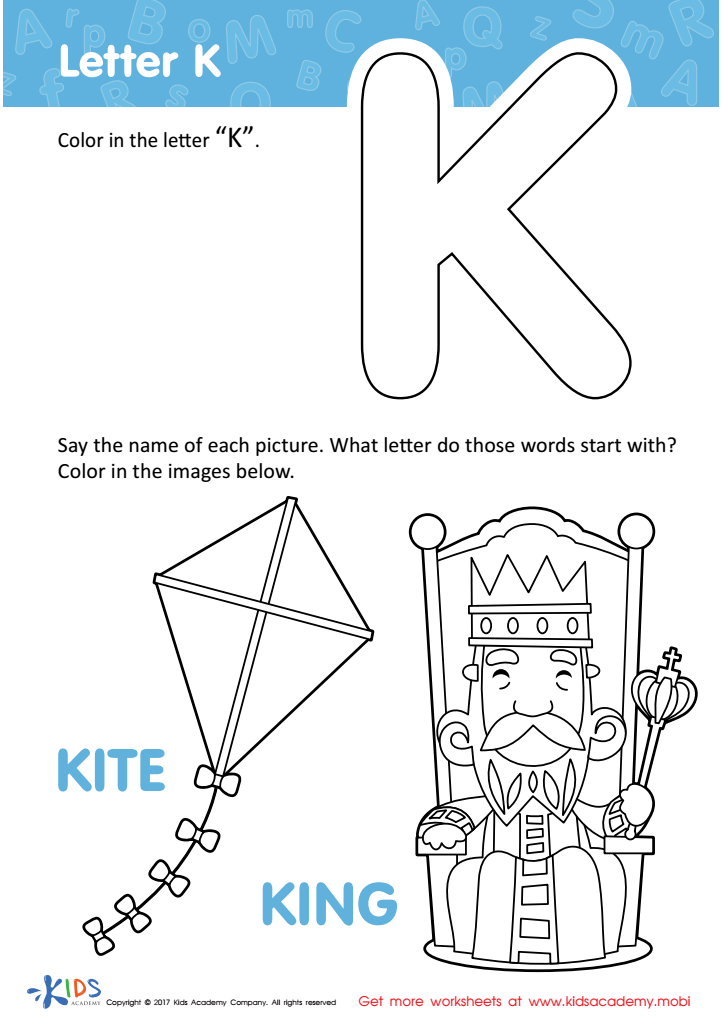

Letter K Coloring Sheet
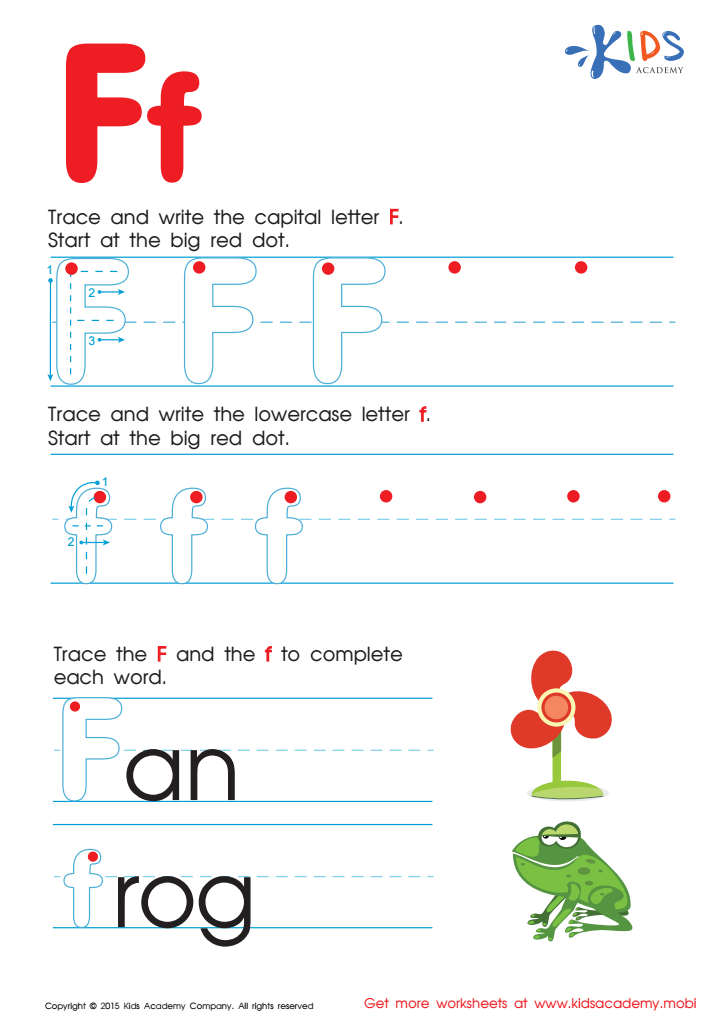

Letter F Tracing Page
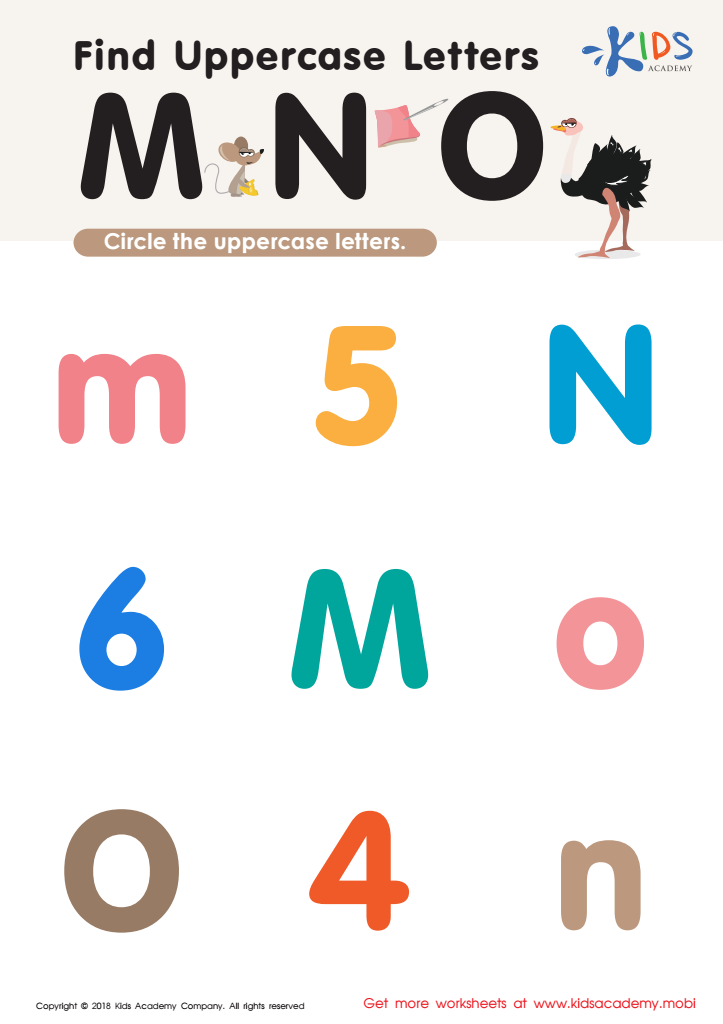

Find Uppercase Letters M, N, and O Worksheet


Long and Short E Worksheet


Phonological Awareness: Assessment 1 Worksheet
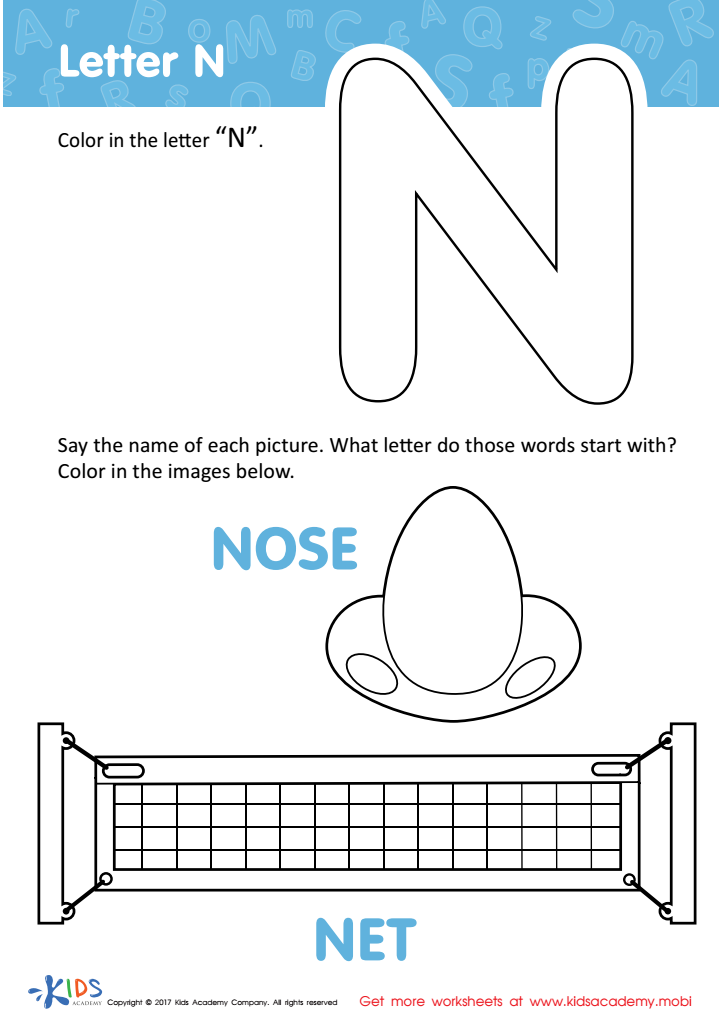

Letter N Coloring Sheet
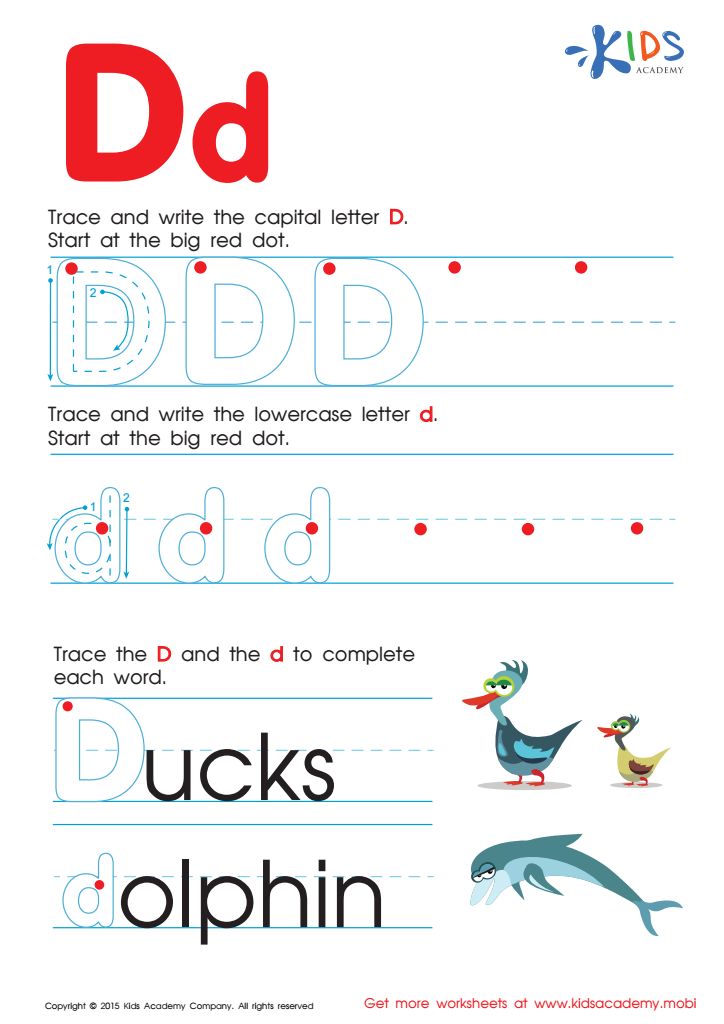

Letter D Tracing Page
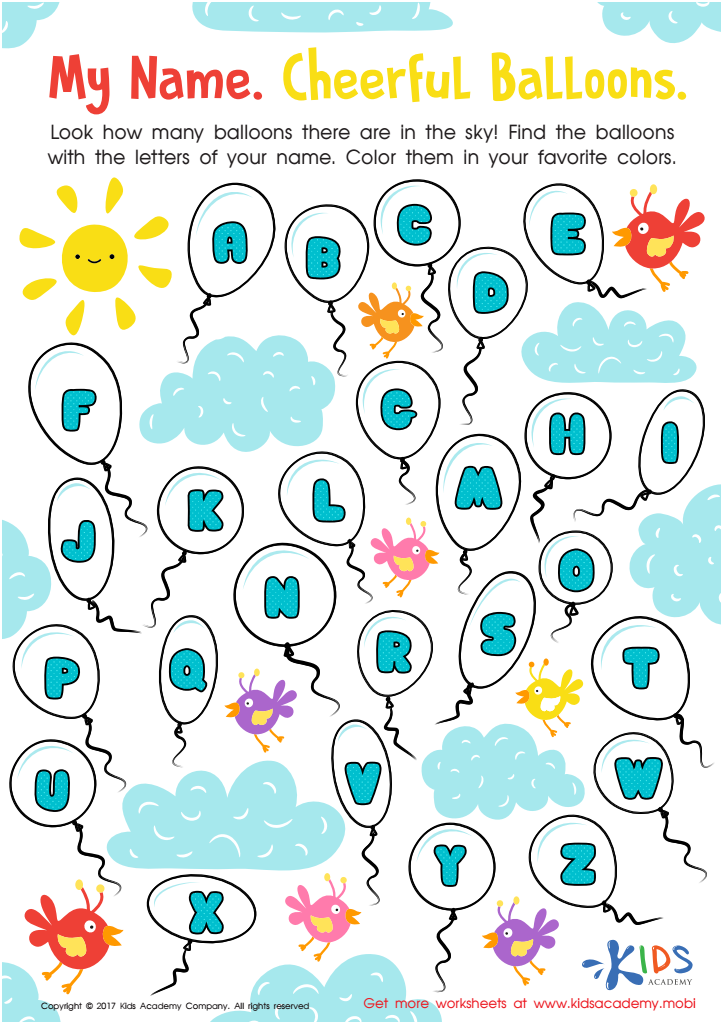

My Name: Cheerful Balloons Worksheet
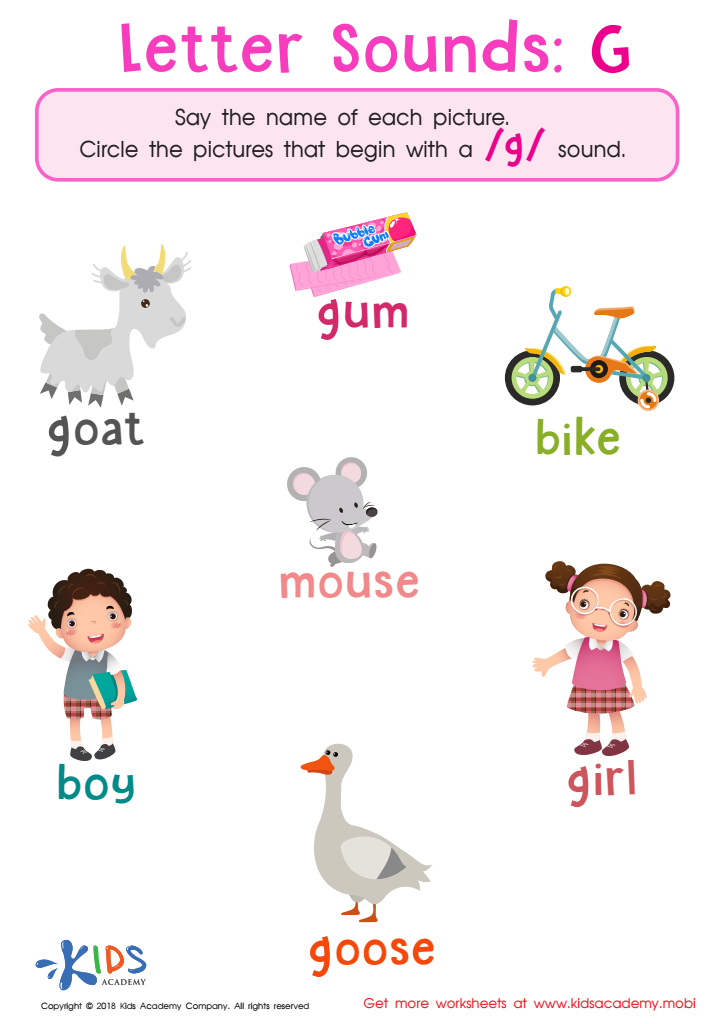

Letter G Sounds Worksheet
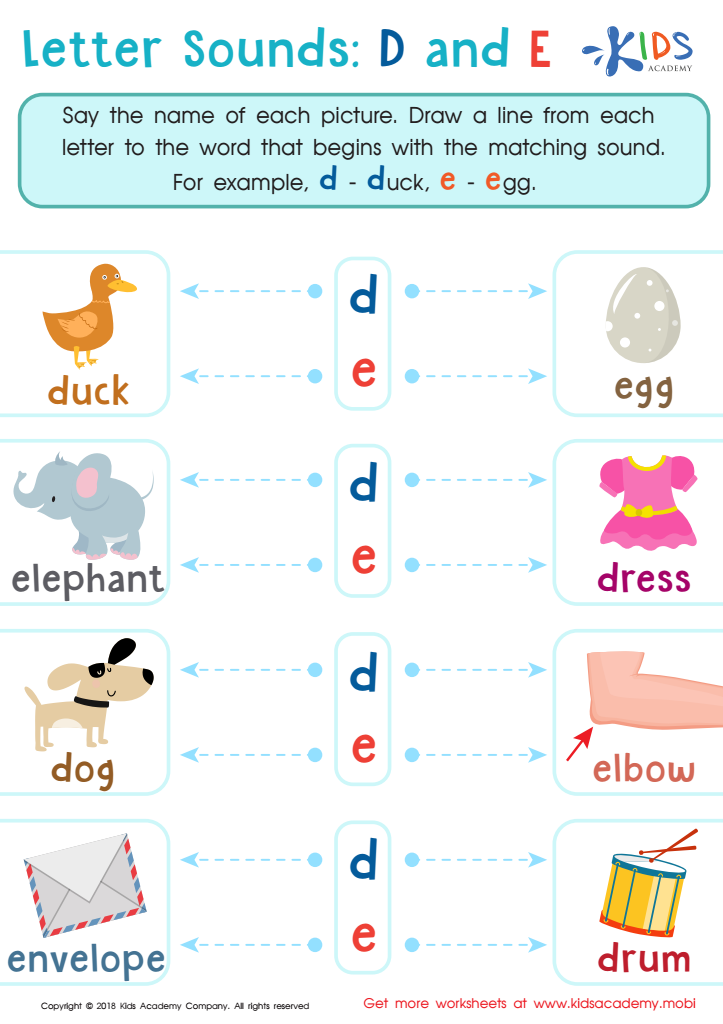

Letter D and E Sounds Worksheet
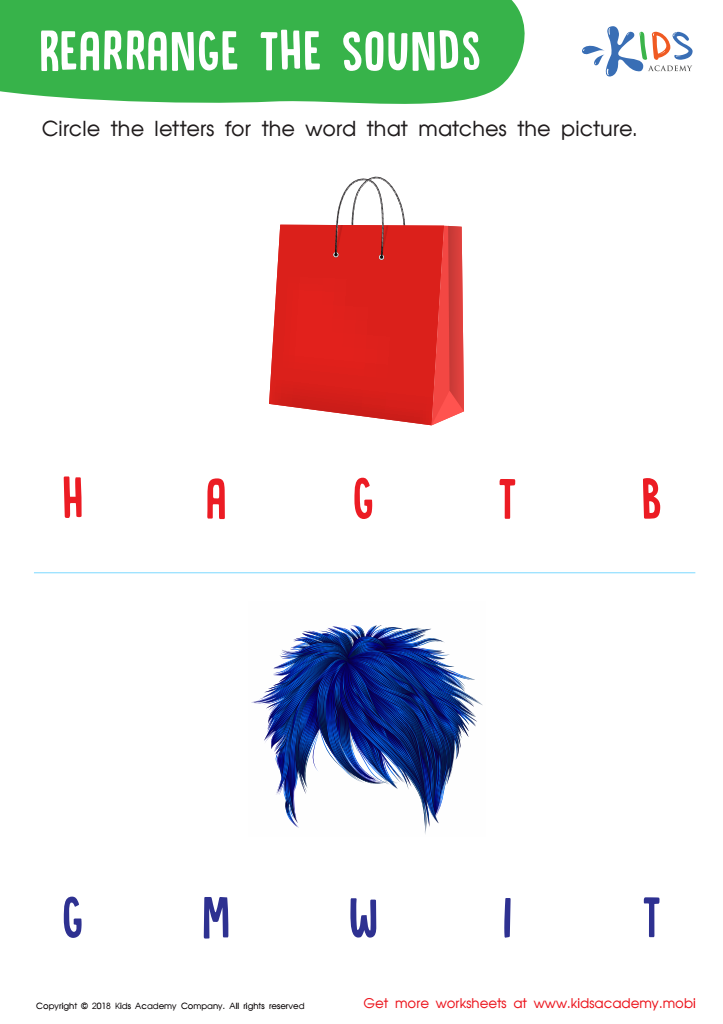

Rearrange the Sounds Worksheet
Letter recognition is a crucial skill for young learners, particularly for those aged 4-5. At this developmental stage, children begin to connect sounds with letters and understand that these symbols represent sounds in the spoken language, which is foundational for reading and writing. Parents and teachers should prioritize letter recognition because it fosters essential literacy skills that can have a lasting impact on a child's academic journey.
Firstly, recognizing letters lays the groundwork for phonemic awareness, enabling children to decode words effectively. This supports confidence in early reading, setting the stage for successful learning experiences. Secondly, recognition of letters strengthens vocabulary development, as children learn to associate words with their meanings, enhancing communication skills.
In a broader context, promoting letter recognition allows for individualized learning approaches that cater to each child's pace, ensuring they feel included and encouraged. Engaging activities that focus on letter recognition, like games and interactive reading sessions, also promote bonding between children and their caregivers. In summary, focusing on letter recognition in early education not only aids in language acquisition but also nurtures a love for learning, establishing a solid foundation for future academic success.
 Assign to My Students
Assign to My Students















